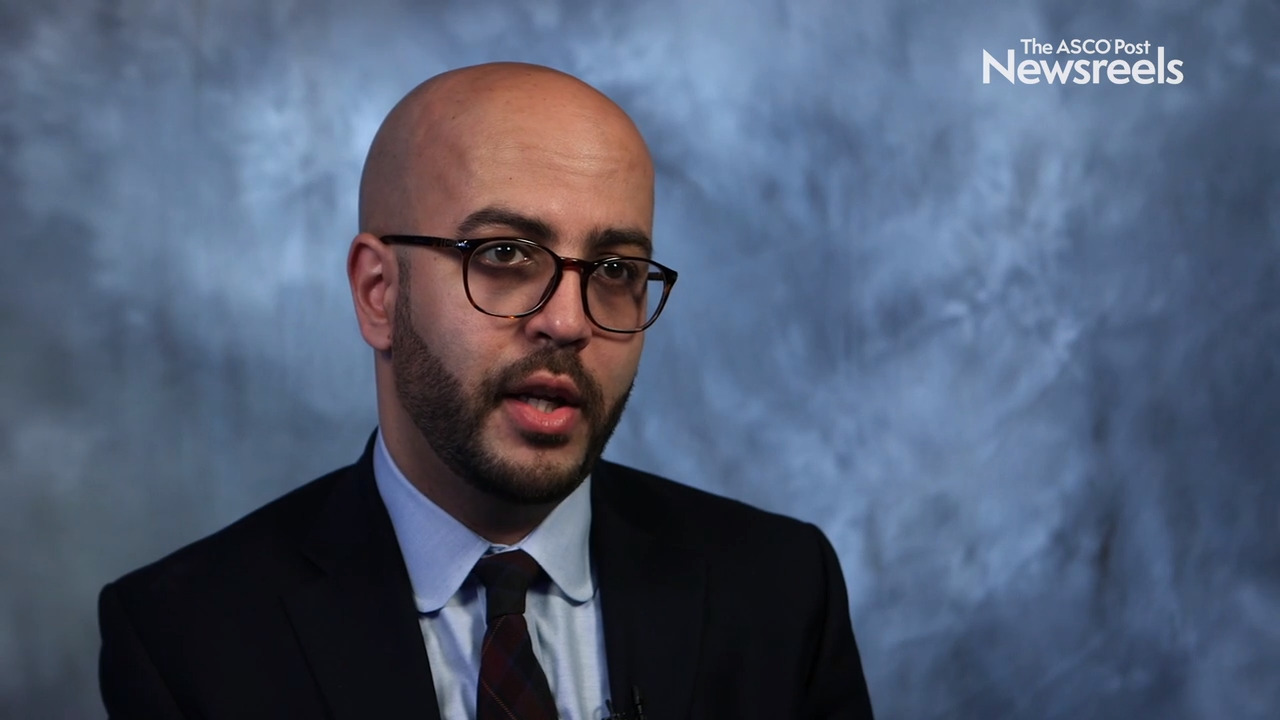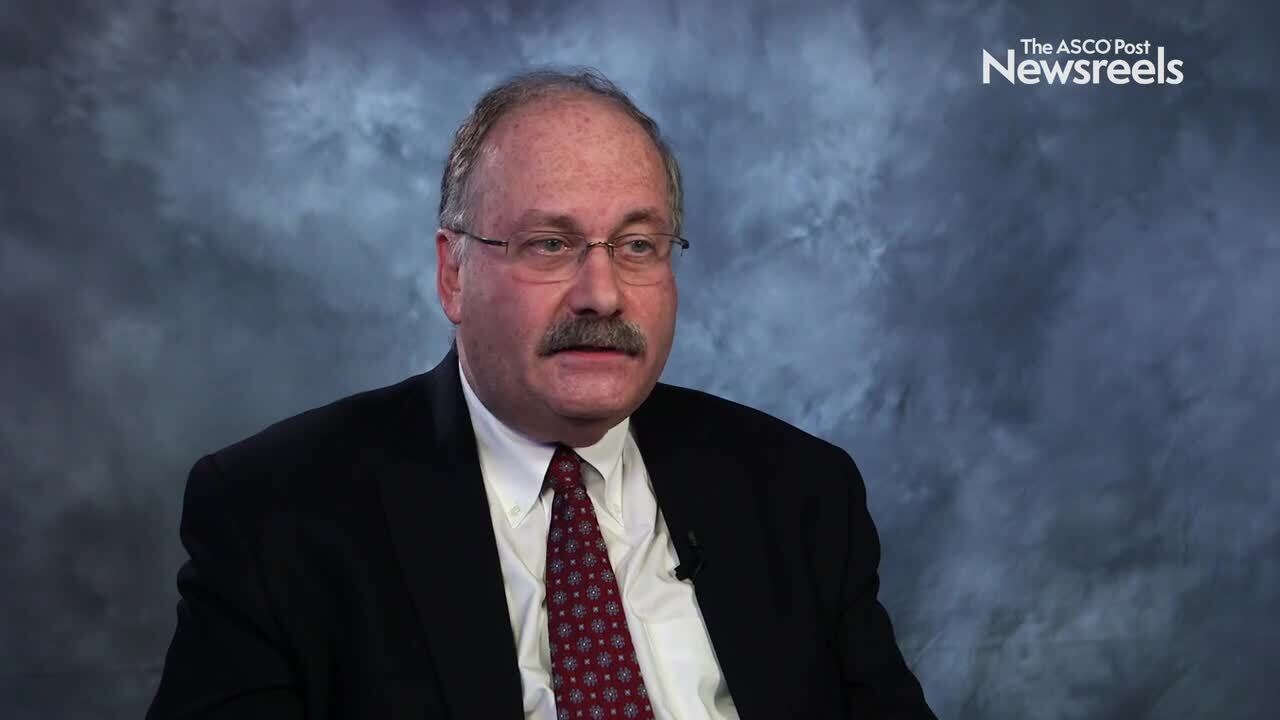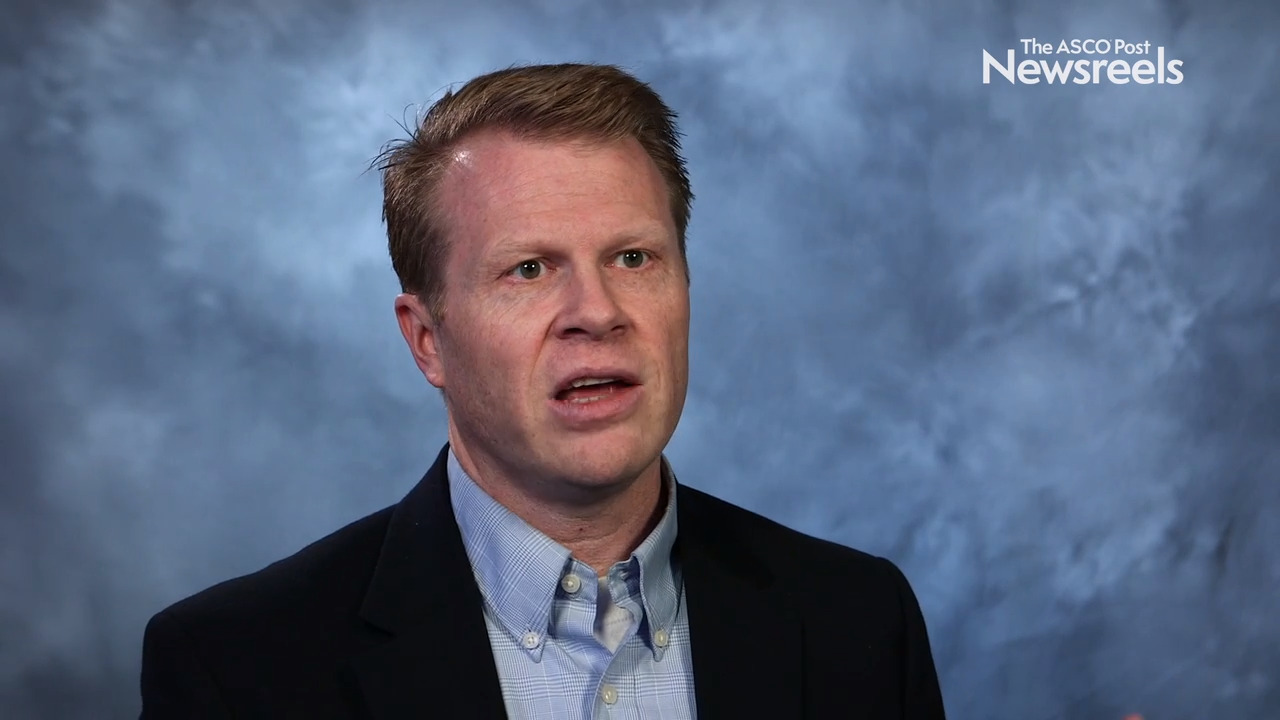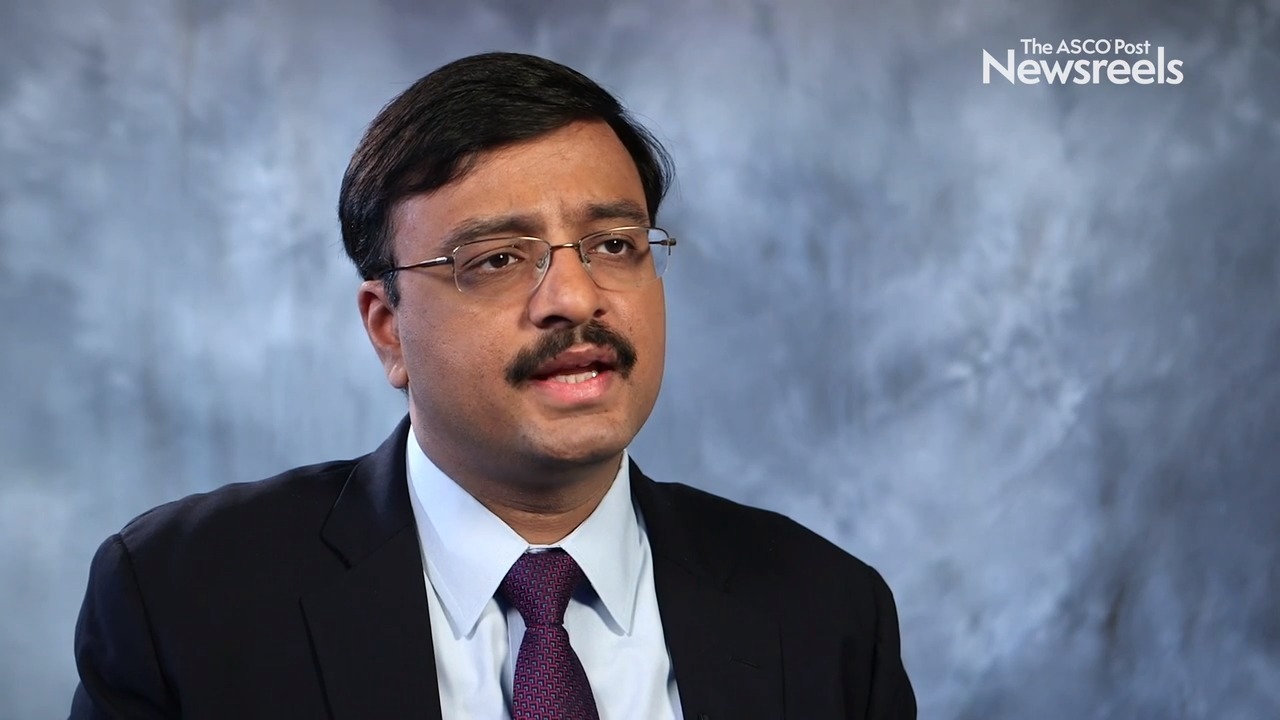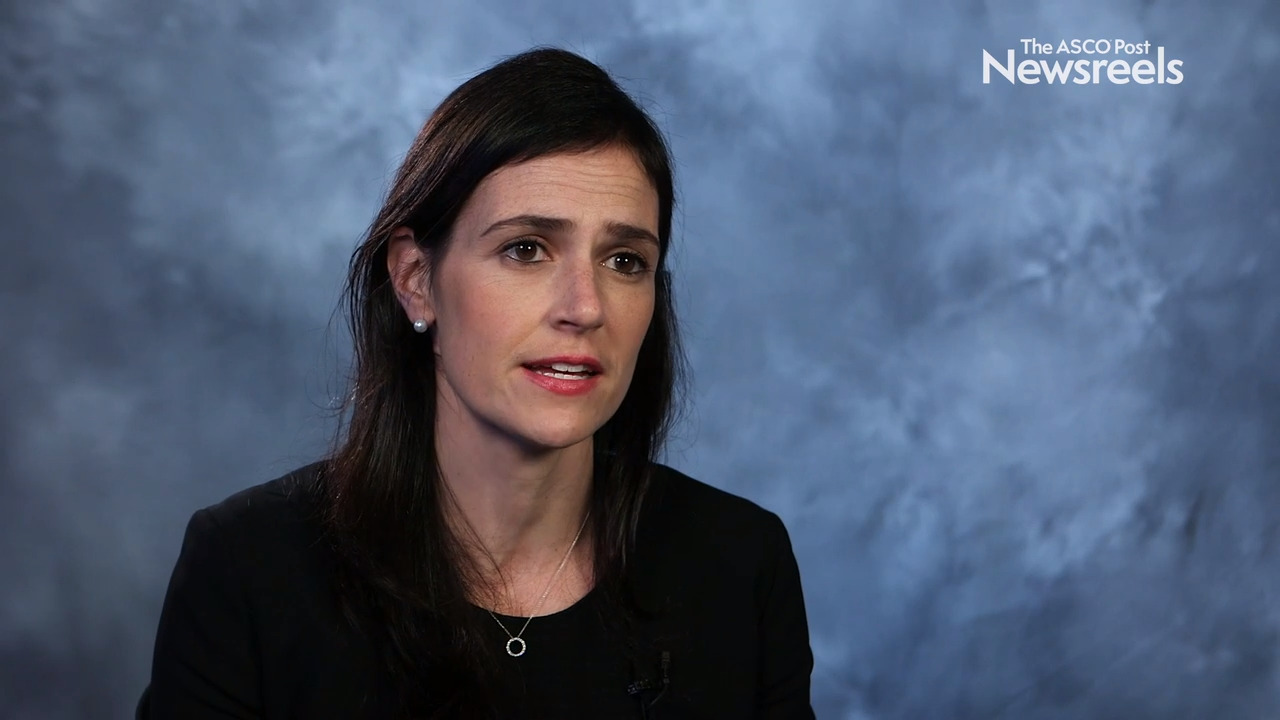Andrew H. Wei, MBBS, PhD, on AML: Results From the QUAZAR Trial on Oral Azacitidine
2019 ASH Annual Meeting & Exposition
Andrew H. Wei, MBBS, PhD, of The Alfred Hospital, Melbourne, discusses phase III findings on oral azacitidine (CC-486), the first treatment used in the maintenance setting shown to improve both overall and disease-free survival in patients with acute myeloid leukemia that is in remission following induction chemotherapy (Abstract LBA-3).
Mark Bustoros, MD, of Dana-Farber Cancer Institute, discusses phase II study results showing that the combination of ixazomib, lenalidomide, and dexamethasone is effective in patients with high-risk smoldering disease, with a high response rate, convenient schedule, and manageable toxicity. Longer follow-up for disease outcome is ongoing (Abstract 580).
Edward A. Stadtmauer, MD, of the University of Pennsylvania Abramson Cancer Center, discusses phase I results of immune cells, modified with CRISPR/Cas9 technology, and infused in three patients (two with multiple myeloma and one with sarcoma). Researchers observed the cells expand and bind to their tumor targets with no serious side effects (Abstract 49).
Tait D. Shanafelt, MD, of Stanford University, discusses extended follow-up data that show ibrutinib plus rituximab improved clinical outcomes vs the standard therapy of fludarabine/cyclophosphamide/ rituximab in younger patients with previously untreated chronic lymphocytic leukemia (Abstract 33).
Nitin Jain, MD, of The University of Texas MD Anderson Cancer Center, discusses findings from two studies showing that the combination of ibrutinib and venetoclax is an effective chemotherapy-free oral regimen for patients with high-risk, previously untreated chronic lymphocytic leukemia (Abstract 34).
Jennifer Crombie, MD, of Dana-Farber Cancer Institute, discusses early study results which showed that duvelisib plus venetoclax showed activity in patients with relapsed or refractory chronic lymphocytic leukemia/small lymphocytic lymphoma, with no dose-limiting toxicities observed (Abstract 1763).
